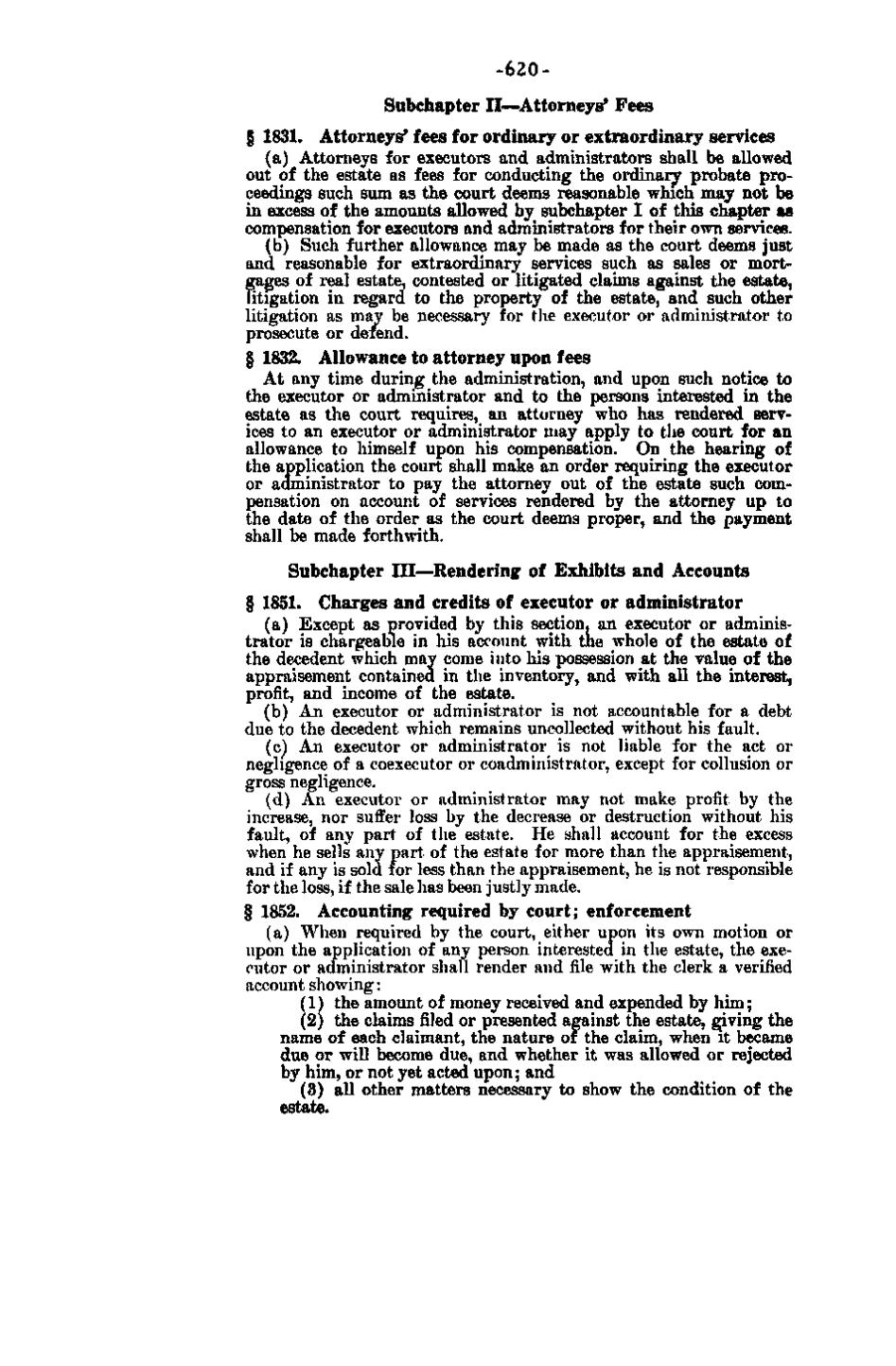–620–
-620Subchapter II—Attorneys' Fees § 1831. Attorneys' fees for ordinary or extraordinary services (a) Attorneys for executors and administrators shall be allowed out of the estate as fees for conducting the ordinary probate proceedings such sum as the court deems reasonable which may not be in excess of the amounts allowed by subchapter I of this chapter as compensation for executors and administrators for their own services. (b) Such further allowance may be made as the court deems just and reasonable for extraordinary services such as sales or mortgages of real estate, contested or litigated claims against the estate, litigation in regard to the property of the estate, and such other litigation as may be necessary for the executor or administrator to prosecute or defend. § 1832. Allowance to attorney upon fees At any time during the administration, and upon such notice to the executor or administrator and to the persons interested in the estate as the court requires, an attorney who has rendered services to an executor or administrator may apply to the court for an allowance to himself upon his compensation. On the hearing of the application the court shall make an order requiring the executor or administrator to pay the attorney out of the estate such compensation on account of services rendered by the attorney up to the date of the order as the court deems proper, and the payment shall be made forthwith. Subchapter III—Rendering of Exhibits and Accounts § 1851. Charges and credits of executor or administrator (a) Except as provided by this section, an executor or administrator is chargeable in his account with the whole of the estate of the decedent which may come into his possession at the value of the appraisement contained in the inventory, and with all the interest, profit, and income of the estate. (b) An executor or administrator is not accountable for a debt due to the decedent which remains uncollected without his fault. (c) An executor or administrator is not liable for the act or negligence of a coexecutor or coadministrator, except for collusion or gross negligence. (d) An executor or administrator may not make profit by the increase, nor suffer loss by the decrease or destruction without his fault, of any part of the estate. He shall account for the excess when he sells any part of the estate for more than the appraisement, and if any is sold for less than the appraisement, he is not responsible for the loss, if the sale has been justly made. § 1852. Accounting required by court; enforcement (a) When required by the court, either upon its own motion or upon the application of any person interested in the estate, the executor or administrator shall render and file with the clerk a verified account showing: (1) the amount of money received and expended by him; (2) the claims filed or presented against the estate, giving the name of each claimant, the nature of the claim, when it became due or will become due, and whether it was allowed or rejected by him, or not yet acted upon; and (3) all other matters necessary to show the condition of the estate.
�
